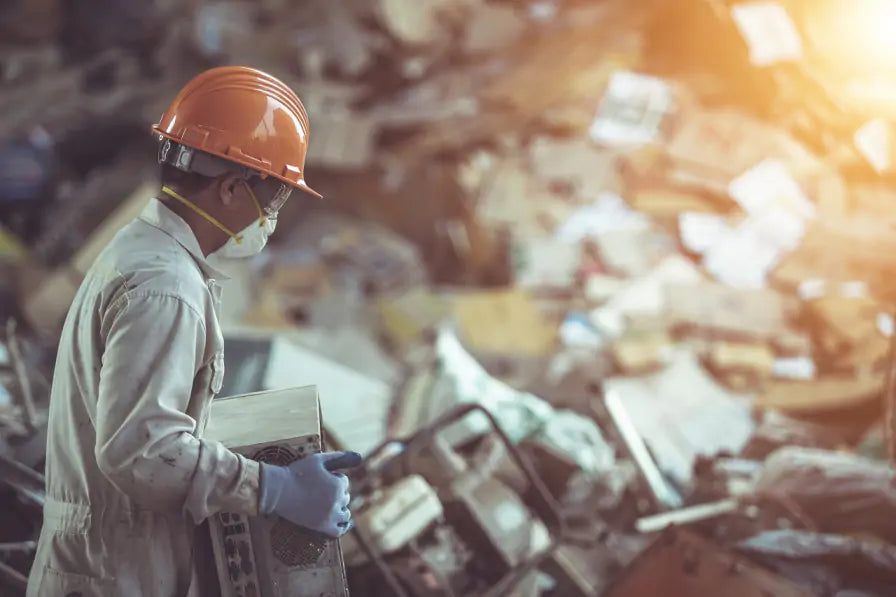OR
Express Checkout

This week we look at e-waste and the problems caused by sending it to landfill.
Christmas always brings a surge in sales of computers and other electronic equipment. Technology evolves so quickly, and an electronic product now has an average shelf life of 2 years, so it’s no surprise that so called ‘e-waste’ makes up much of the waste taken to landfill these days. Last year nearly 50m tonnes of e-waste was generated worldwide – or about 7kg for every person on the planet.
The problem of e-waste disposal
E-waste is very toxic. Electronic goods are made up of many different materials and toxic substances such as lead, mercury, cadmium and arsenic. These substances can end up in our soil and groundwater as the items degrade. An old-style computer monitor could contain up to 3kg of lead!
Toxic chemicals obviously damage the environment and pose a health risk to communities. In Europe, most countries prohibit the dumping of e-waste in landfills as it is so toxic, so a lot of the waste ends up being exported to developing countries such as India and Africa. This poses risks to people who handle the waste and causes significant pollution. In developing countries, scrap and waste is often sorted by hand, often by children, so the potential for it being a health hazard is very high.

E-waste is valuable
When electronics are discarded, the raw materials are lost. Some of the materials in the products are valuable natural resources and they are running out. Iridium for example, is used in making plasma TV’s and it is rare and in short supply.
Solutions to the e-waste problem
Recycle
E-waste can be recycled. Plastic, glass and some metals can be re-used. There are also schemes where you can send electronics back to the manufacturer for recycling, or you can take them to a designated local council collection site. Schemes such as Envirofone will allow you to recycle old handsets in return for cash, and the amount of money you make depends on the make and model of the phone.
Donate
If the goods are still in working order, you can donate them to a charity shop or another local good cause or pass them on to family and friends.
We all want the latest smartphone, tablet or laptop, but we need to consider how our throwaway society impacts upon the environment and the people who end up getting our waste dumped on them.